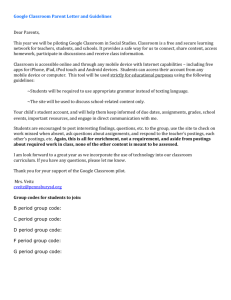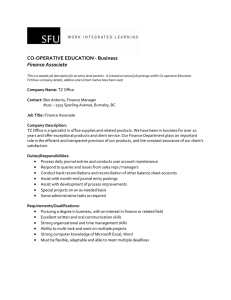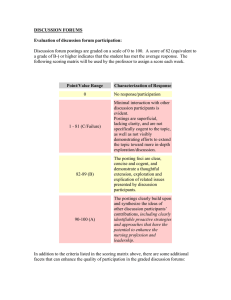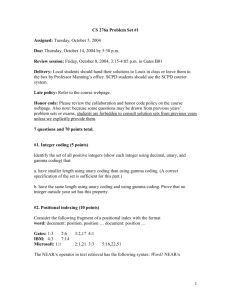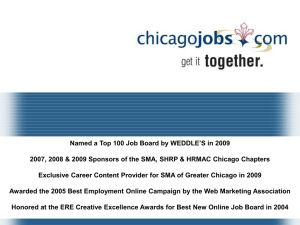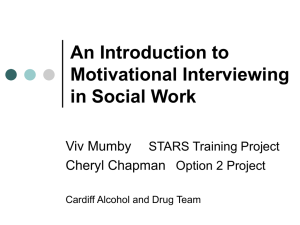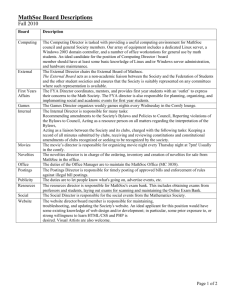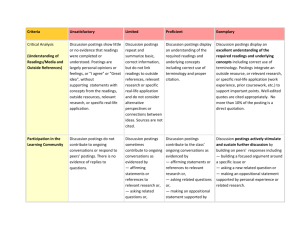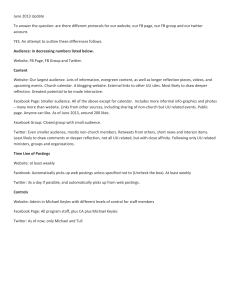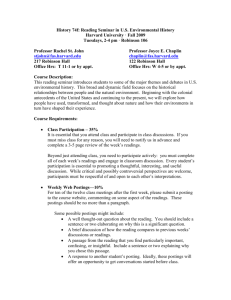Social Media - University of New Mexico
advertisement
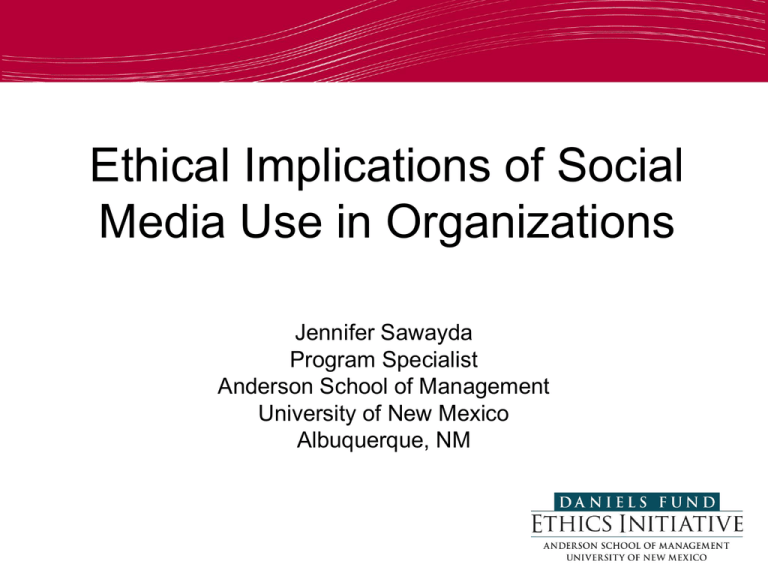
Ethical Implications of Social Media Use in Organizations Jennifer Sawayda Program Specialist Anderson School of Management University of New Mexico Albuquerque, NM Consequences of Organizational Social Media Misuse • Twitter and CFO Postings Cost CFO His Job • PG&E may be fined over former employee’s spying • Peyton Manning Tip: Waiter Fired for Revealing Generous Gratuity • P&G Bans Use of Pandora, Netflix for Employees • For Angry Employees, Legal Cover for Rants Adult Use of Social Networking Sites Social Media Facts • Organizational use of social media: 76% (Retail/Wholesale), 74% (Business services/Communications/Finance/Insurance), 72% (Hospitality/Cultural/Rec Services) • 64% of employees say they waste time at work each day; social media usage is one of the top time wasters at 14% • Those who spend 30% or more of work time on social media are four times more likely to experience pressure to compromise company values and standards • These active social networkers constitute approximately 11% of employees Ways that Social Media Can Benefit Business • Market research – Understand consumer opinions and preferences • Communication with stakeholders – Answer customer concerns – Engage in dialogue with consumers • Promotion – Advertisements and company updates through social media – Viral marketing • Employee engagement – Allow employees to communicate with consumers over social networks – Internal social networks like Yammer can help employees to communicate with each other Benefits vs. Costs • According to KPMG survey, respondents noted the following risk areas regarding social media misuse in the workplace: bandwidth (46%), time wasting (35%), malware exposure (49%), confidential information (22%), and negative representation of company (19%) • However, organizational social media use has contributed to relationship building, job satisfaction, productivity gains, wider knowledge pools, and more • For many companies, the benefits of social media use outweigh the risk areas Impact of Social Media on Companies and Employees • Workers expect access to social media sites – Millennials expect social media to be available – Banning social media sites can make employees feel the company doesn’t trust them • Gray area between the employee, the company, and external activities • More interconnected world • Less privacy and more risks that work activities will be discussed Major Risks • • • • Work effectiveness/productivity Reputation damage Information protection Legal violations Guarding Against Social Media Risks • To guard against social media risks, business should develop: – Guidelines dictating acceptable use of social media • Internal use of social media and external use – Training on appropriate social media use, including employee rights and risks – Rules and guidelines to guide employees when they use social media to interact with customers – Clear policies dealing with removal of material on company sites that is deemed inappropriate Monitoring Employee Postings • Should a company monitor social media postings in the workplace? – While this is permitted and could even be advantageous for the company, it should inform employees of the company’s right to monitor workforce postings so that employees are aware Conclusion • Social media can be a great way for companies to conduct market research, communicate with employees, promote company products, and engage consumers – Beneficial to HR and marketing • However, misuse of social media can easily turn into a nightmare. – – – – Privacy Reputation Legal implications Employee rants • Rather than banning social media use outright and losing a competitive advantage, businesses should have policies and monitoring systems in place to determine appropriate use of social media in the organization
